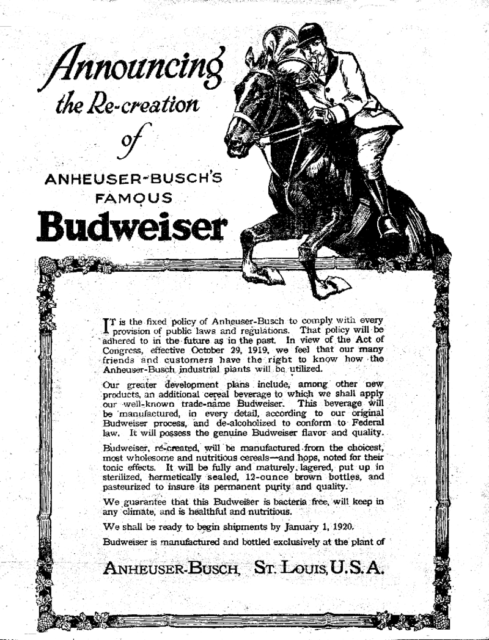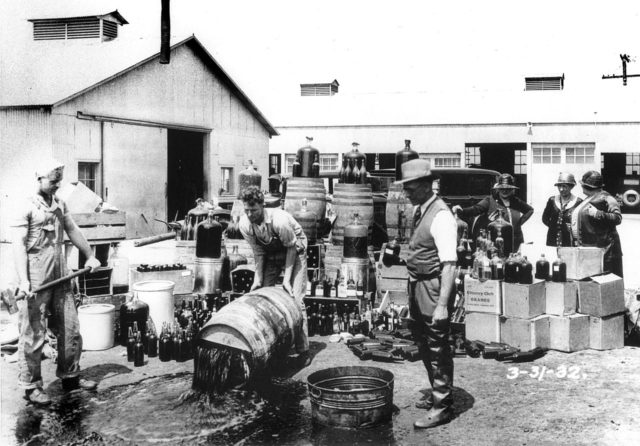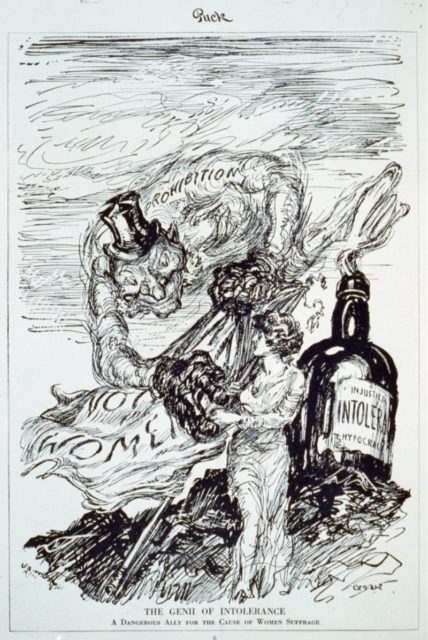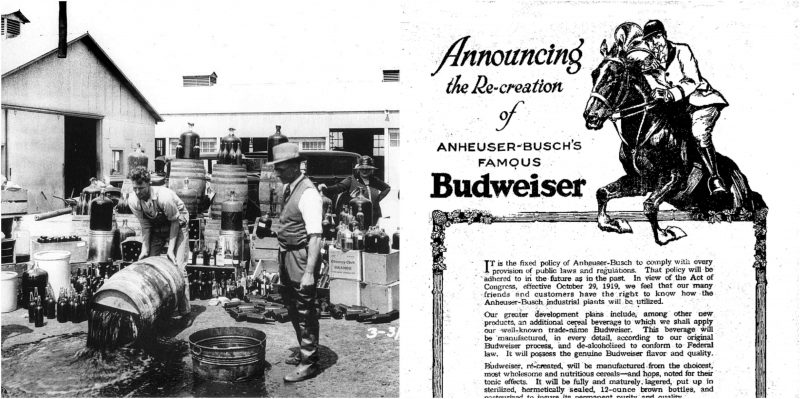Four and twenty Yankees, feeling very dry,
Went across the border to get a drink of rye.
When the rye was opened, the Yanks began to sing,
“God bless America, but God save the King!”
Prohibition began on January 16, 1920, when the Eighteenth Amendment went into effect. A total of 1,520 Federal Prohibition agents (police) were tasked with enforcement.
Supporters of the Amendment soon became confident that it would not be repealed. One of its creators, Senator Morris Sheppard, joked that “there is as much chance of repealing the Eighteenth Amendment as there is for a humming-bird to fly to the planet Mars with the Washington Monument tied to its tail.”

Prohibition became highly controversial among medical professionals, because alcohol was widely prescribed by the era’s physicians for therapeutic purposes. Congress held hearings on the medicinal value of beer in 1921.
Subsequently, physicians across the country lobbied for the repeal of Prohibition as it applied to medicinal liquors. From 1921 to 1930, doctors earned about $40 million for whiskey prescriptions.

While the manufacture, importation, sale, and transport of alcohol was illegal in the United States, Section 29 of the Volstead Act allowed wine and cider to be made from fruit at home, but not beer.
Up to 200 gallons of wine and cider per year could be made, and some vineyards grew grapes for home use. The Act did not prohibit consumption of alcohol. Many people stockpiled wines and liquors for their personal use in the latter part of 1919 before sales of alcoholic beverages became illegal in January 1920.

Since alcohol was legal in neighboring countries, distilleries and breweries in Canada, Mexico, and the Caribbean flourished as their products were either consumed by visiting Americans or smuggled into the United States illegally.
The Detroit River, which forms part of the U.S. border with Canada, was notoriously difficult to control, especially rum-running in Windsor, Canada.
When the U.S. government complained to the British that American law was being undermined by officials in Nassau, Bahamas, the head of the British Colonial Office refused to intervene. Winston Churchill believed that Prohibition was “an affront to the whole history of mankind”
